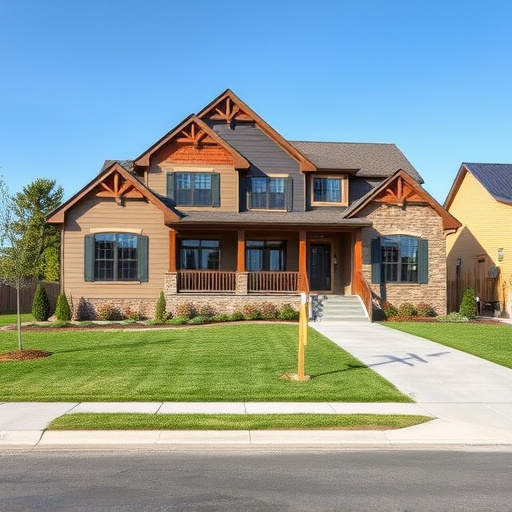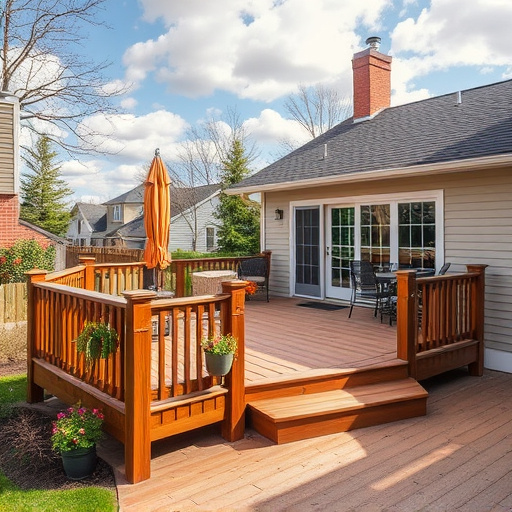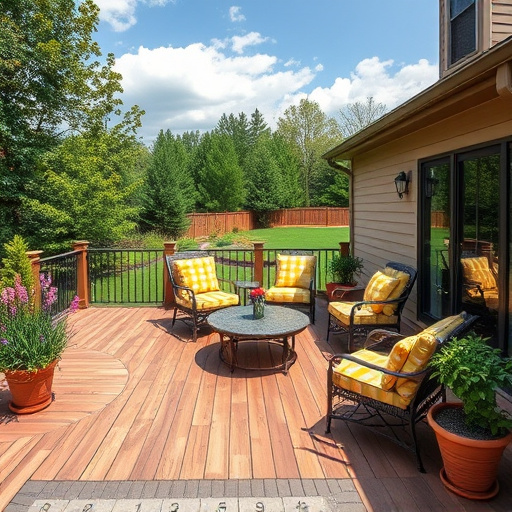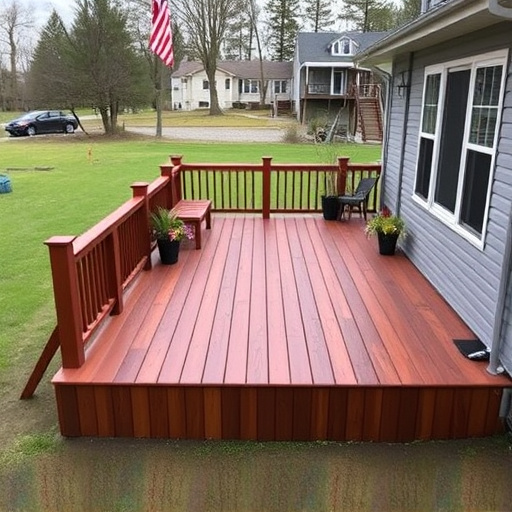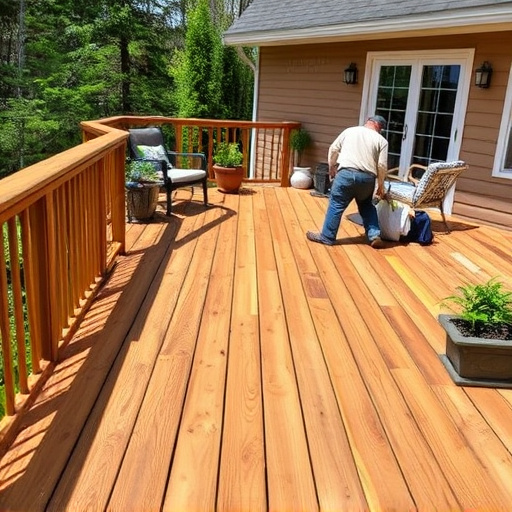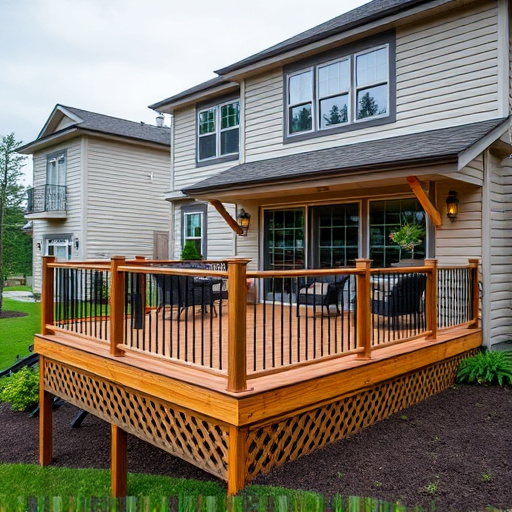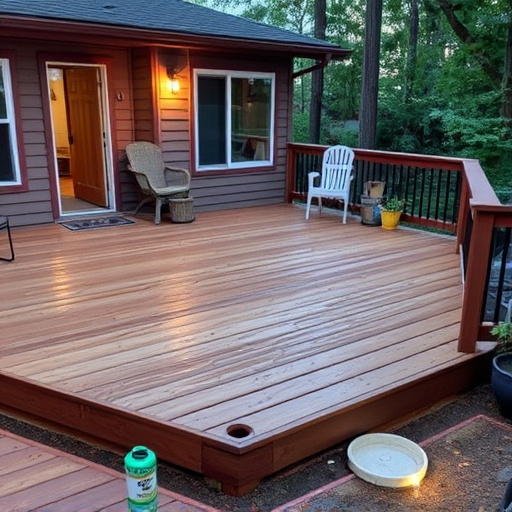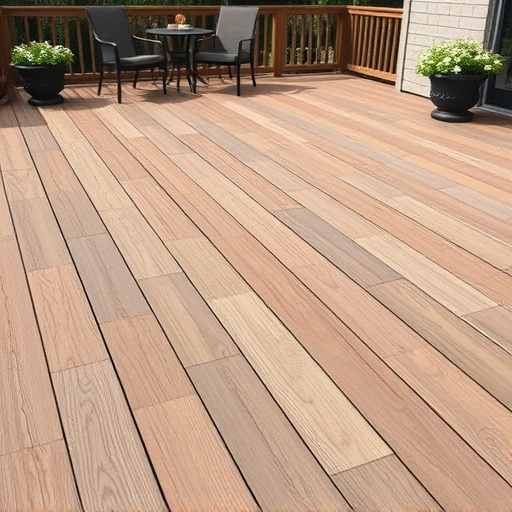Understanding local zoning regulations is crucial for successful commercial decking projects, ensuring legal stability, structural integrity, and aesthetic appeal while withstanding harsh weather conditions. Compliance involves adhering to height restrictions, building codes, material choices, and safety standards, requiring early consultation with authorities, professional guidance, regular inspections, and robust safety features. Repairs must be handled by professionals to maintain current zoning laws compliance and prevent future legal issues.
“In the realm of commercial construction, adding a deck can elevate outdoor spaces, enhancing functionality and aesthetics. However, navigating local zoning laws is crucial for ensuring compliance and safety. This article guides you through the intricacies of commercial decking, focusing on understanding and adhering to zoning regulations. We’ll explore key considerations during design and installation, highlighting strategies to ensure your deck meets all legal requirements while prioritizing safety.”
- Understanding Local Zoning Regulations for Commercial Decks
- Key Considerations When Designing and Installing Commercial Decking
- Compliance Strategies to Ensure Deck Legality and Safety
Understanding Local Zoning Regulations for Commercial Decks
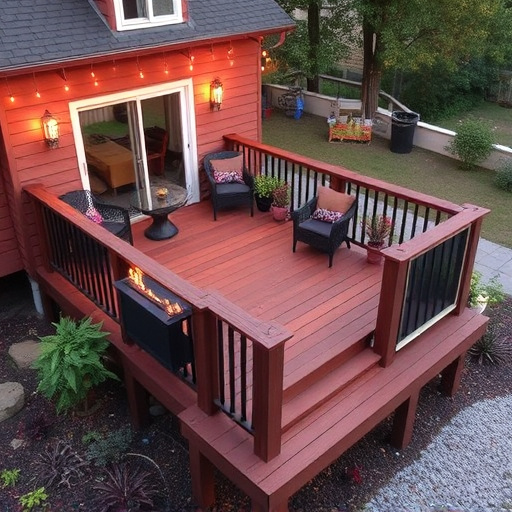
Understanding local zoning regulations is a critical step when considering commercial decking projects. Every municipality has its own set of rules and guidelines governing the construction and design of outdoor structures, including decks. These regulations are in place to ensure safety, maintain aesthetic appeal, and preserve the integrity of residential areas. For businesses looking to install or replace commercial decking, it’s essential to familiarize themselves with these local laws to avoid any legal complications.
When planning a commercial deck, property owners should focus on compliance with zoning laws regarding height restrictions, allowable structures, and setbacks. Additionally, building codes for roofing services and siding services might apply, dictating the materials used and specific construction methods. By understanding these regulations, businesses can create functional and aesthetically pleasing outdoor spaces while adhering to local guidelines, ensuring a seamless and legally sound process.
Key Considerations When Designing and Installing Commercial Decking
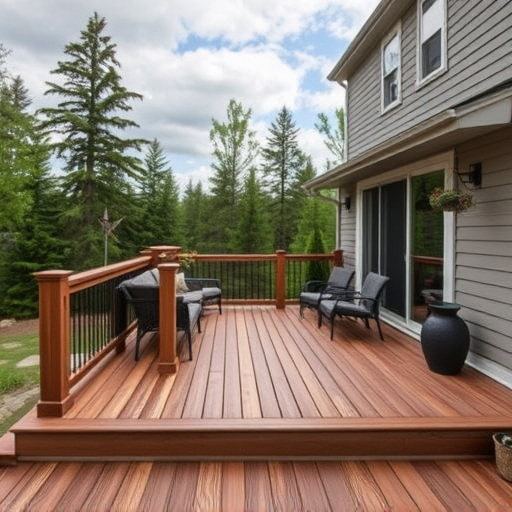
When designing and installing commercial decking, several key considerations come into play to ensure compliance with local zoning laws and a robust, safe structure. First and foremost, understanding the specific building codes and regulations in your area is essential. Commercial decking often faces stricter guidelines due to its high-traffic nature and potential impact on structural integrity. This includes deck size, height, and spacing requirements, as well as material choices that must align with local fire safety standards.
Additionally, considering the long-term durability and low maintenance of the decking is crucial for any commercial project. Given that these structures often serve as exterior home improvements, they need to withstand harsh weather conditions, including heavy rains and strong winds—even potential storm damage repair needs to be anticipated. Integrating materials that are resistant to rot, mold, and UV damage can significantly extend the life of the decking while ensuring a sound investment for business owners.
Compliance Strategies to Ensure Deck Legality and Safety
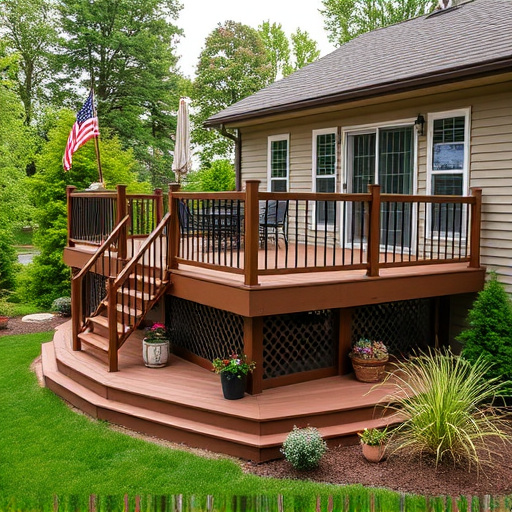
When undertaking a commercial decking project, adhering to local zoning laws is paramount for both legality and safety reasons. To ensure your deck complies with regulations, implement strategic measures from the outset. Firstly, consult with local authorities to grasp specific requirements for deck construction, including permitted materials, dimensions, and structural integrity standards. Engage the services of a professional siding contractor who understands these nuances, as they can guide you in selecting suitable materials that meet both aesthetic expectations and safety guidelines.
Regular inspections during construction are crucial to catch any potential deviations from the code early on. Incorporate robust safety features such as guardrails, non-slip surfaces, and proper lighting to prevent accidents. Additionally, consider the integration of siding and gutters to enhance structural stability and protect against weather damage. For existing decks requiring repairs, consult professionals who can assess the situation and carry out necessary fixes while ensuring compliance with current zoning laws, thereby preventing future legal issues and maintaining a safe environment for all users.
When designing and installing commercial decking, adhering to local zoning laws is paramount. By understanding these regulations, considering key design elements, and employing compliance strategies, you can create a safe, legal, and visually appealing space that enhances any commercial property. Commercial decking, when executed properly, becomes an asset that contributes to the overall success and appeal of a business.



